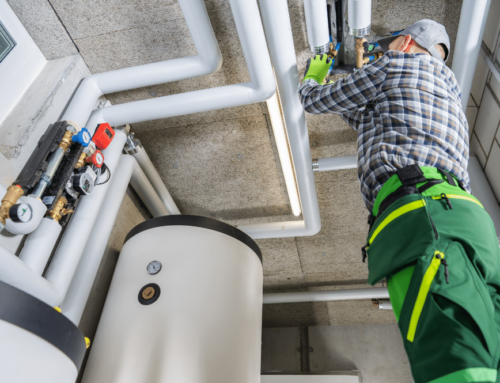How High-Efficiency Systems Can Impact Your Old Cast Iron Drains
If you’ve upgraded to a high-efficiency furnace, boiler, or tankless water heater, congratulations! These systems are great for saving energy and lowering your utility bills. But did you know they can also have an unintended impact on your home’s plumbing? Specifically, the acidic condensate these systems produce might be causing problems for older cast iron drains.
Let’s break down what’s happening and what you can do to protect your plumbing.
What Is Condensate?
High-efficiency systems work by extracting as much heat as possible from the combustion process. This causes water vapor in the exhaust gases to condense into liquid—hence the term “condensate.”
This condensate isn’t just water; it’s slightly acidic, with a pH level ranging from 3 to 4. Over time, this acidity can corrode materials like cast iron, which is commonly found in older homes’ plumbing systems.
How Does Acidic Condensate Affect Cast Iron Drains?
Cast iron is durable but not immune to corrosion. When acidic condensate flows through your cast iron pipes, it can:
- Accelerate Rusting: The acid reacts with the metal, breaking it down faster than normal wear and tear.
- Cause Leaks: As the corrosion eats away at the pipe walls, leaks can develop.
- Weaken Structural Integrity: Severe corrosion can lead to cracks or even pipe failure, which can result in costly repairs.
If your home has cast iron drains and you’ve recently installed a high-efficiency system, it’s worth keeping an eye on your plumbing to avoid any surprises.
Signs of Trouble
Here are some warning signs that your cast iron drains may be suffering from acidic condensate damage:
- Unpleasant Odors: Corroded pipes can allow sewer gases to escape.
- Slow Drains: Corrosion can cause buildup inside the pipes, restricting water flow.
- Leaks or Damp Spots: Look for signs of water damage near your drainpipes.
- Unusual Noises: Gurgling or bubbling sounds from your drains could indicate a problem.
If you notice any of these issues, it’s a good idea to call a professional plumber to inspect your pipes.
What Can You Do to Protect Your Drains?
Fortunately, there are steps you can take to prevent acidic condensate from damaging your cast iron pipes:
- Install a Condensate Neutralizer
- A condensate neutralizer is a small device that raises the pH of the condensate before it enters your drain. It’s filled with materials like limestone or marble chips that neutralize the acidity.
- Upgrade to PVC Drain Pipes
- PVC pipes are resistant to acidic liquids and can be a great alternative to cast iron. If you’re planning plumbing upgrades, consider switching to PVC.
- Regular Plumbing Inspections
- Have your drains inspected annually, especially if you’ve recently installed a high-efficiency system. Early detection of corrosion can save you from costly repairs.
- Keep Up with Maintenance
- Regular maintenance for your furnace, boiler, or water heater can ensure the condensate system is working properly and isn’t overproducing liquid.
Why This Matters for Utah Homeowners
Here in Utah, many homes still have older plumbing systems with cast iron pipes. If you’ve invested in a high-efficiency furnace, boiler, or tankless water heater, taking these preventative steps can help you avoid expensive plumbing problems down the line. Protecting your home’s infrastructure is just as important as saving energy.
Let Utah’s Best Home Pros Help
At Utah’s Best Home Pros, we don’t just install high-efficiency systems—we help you take care of your whole home. Whether you need advice on protecting your plumbing, installing a condensate neutralizer, or upgrading to PVC drains, we’ve got you covered. Our team serves Salt Lake City, Park City, and surrounding areas with expert service you can trust.
Call us today to schedule an inspection or learn more about how we can help keep your home running smoothly!

